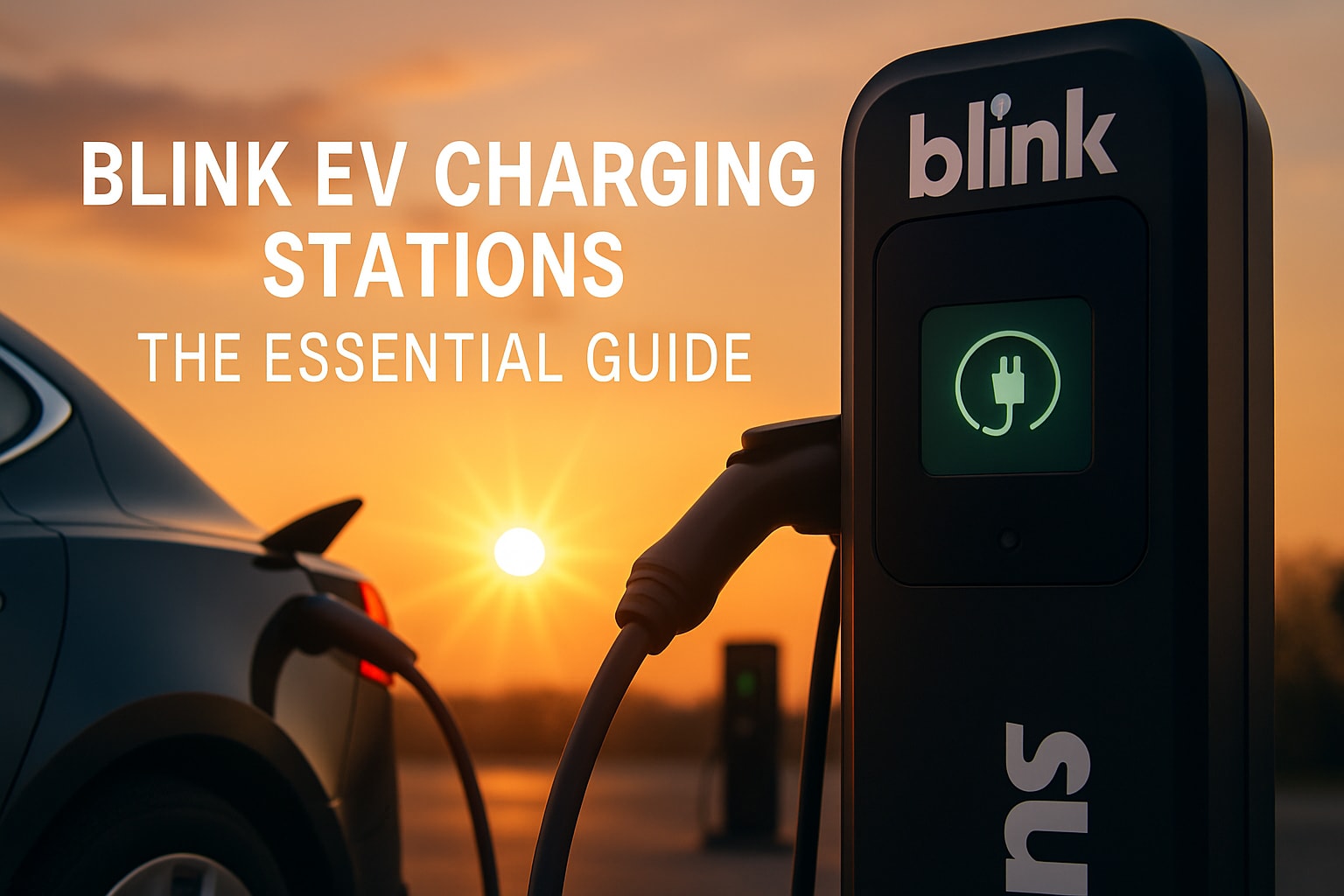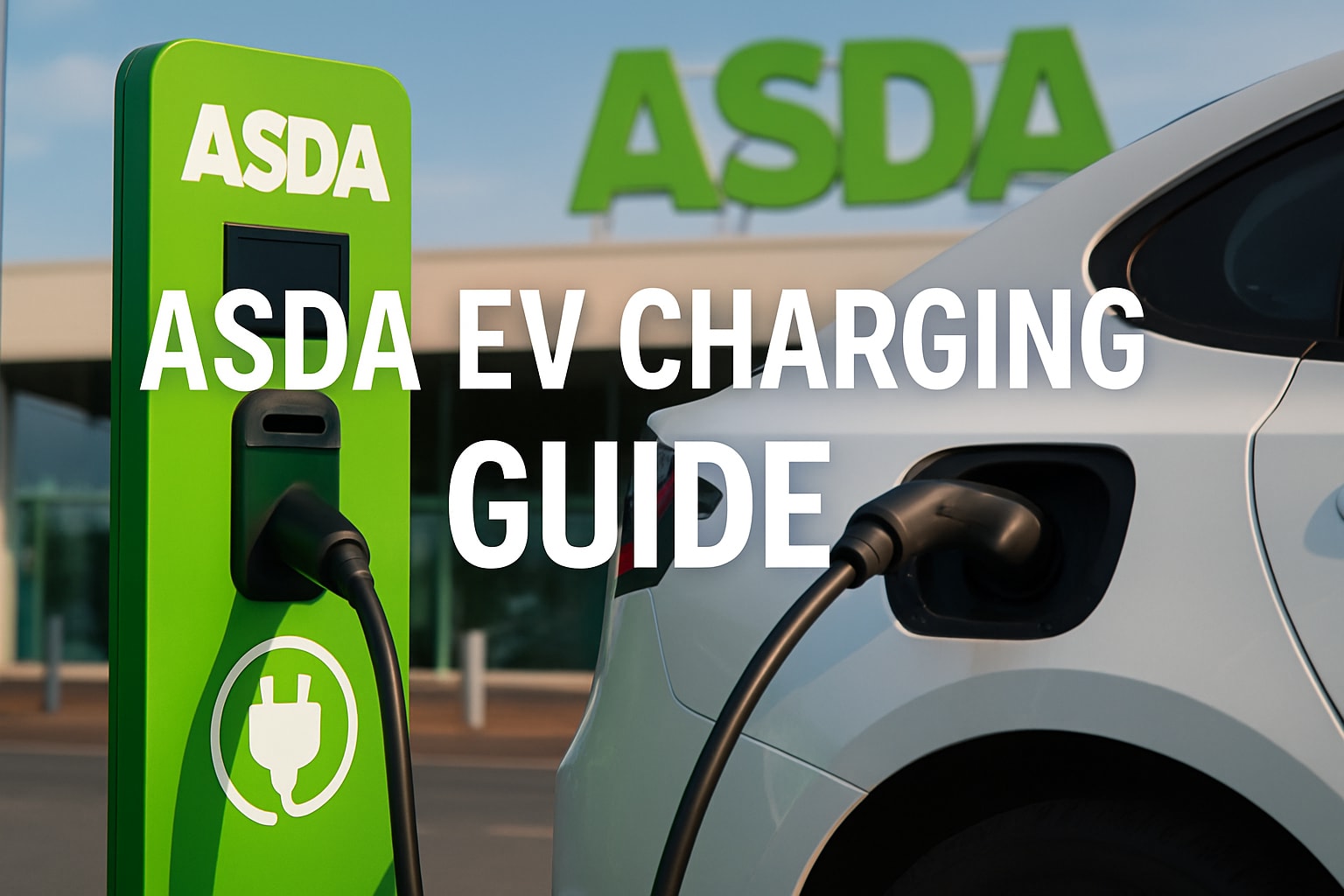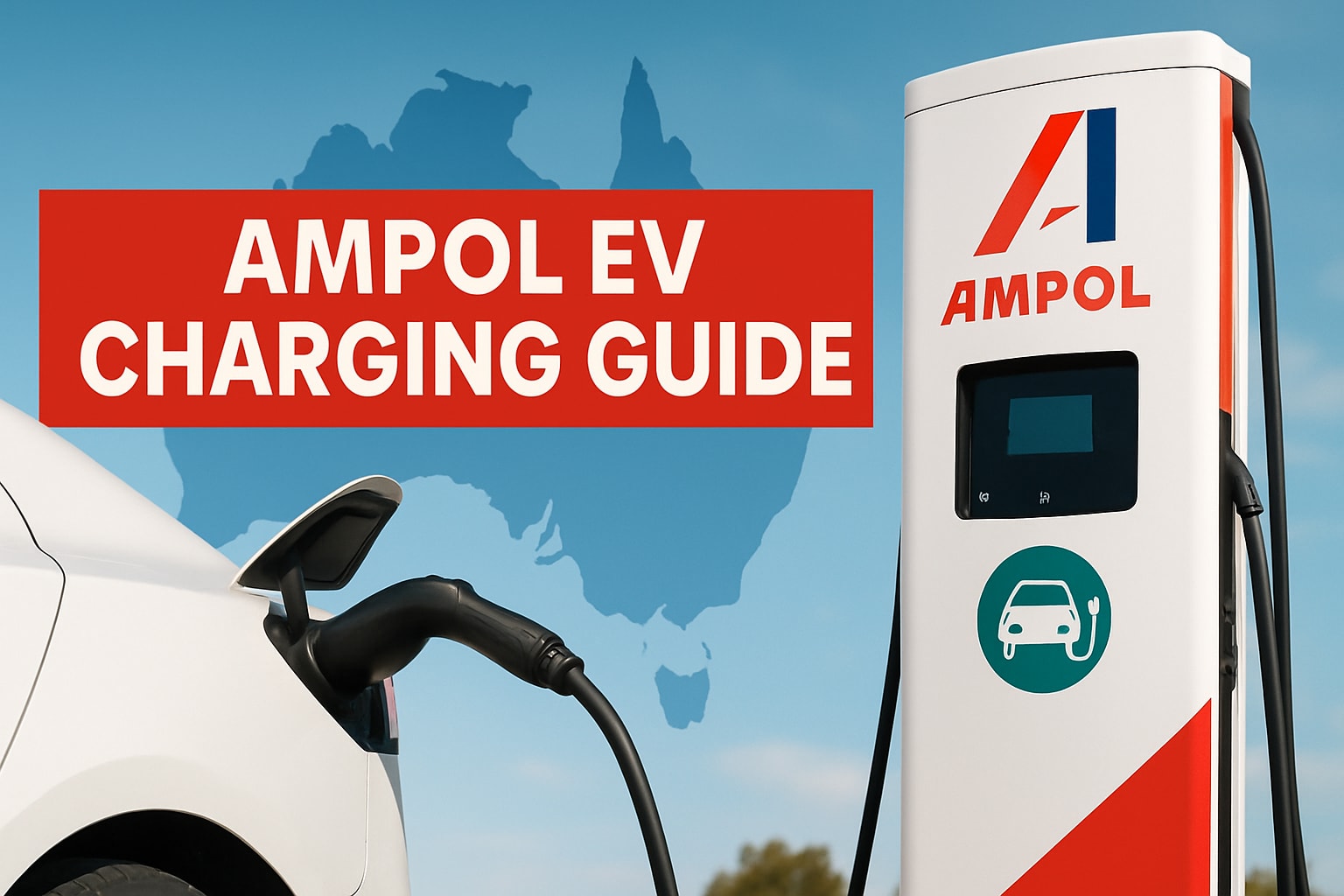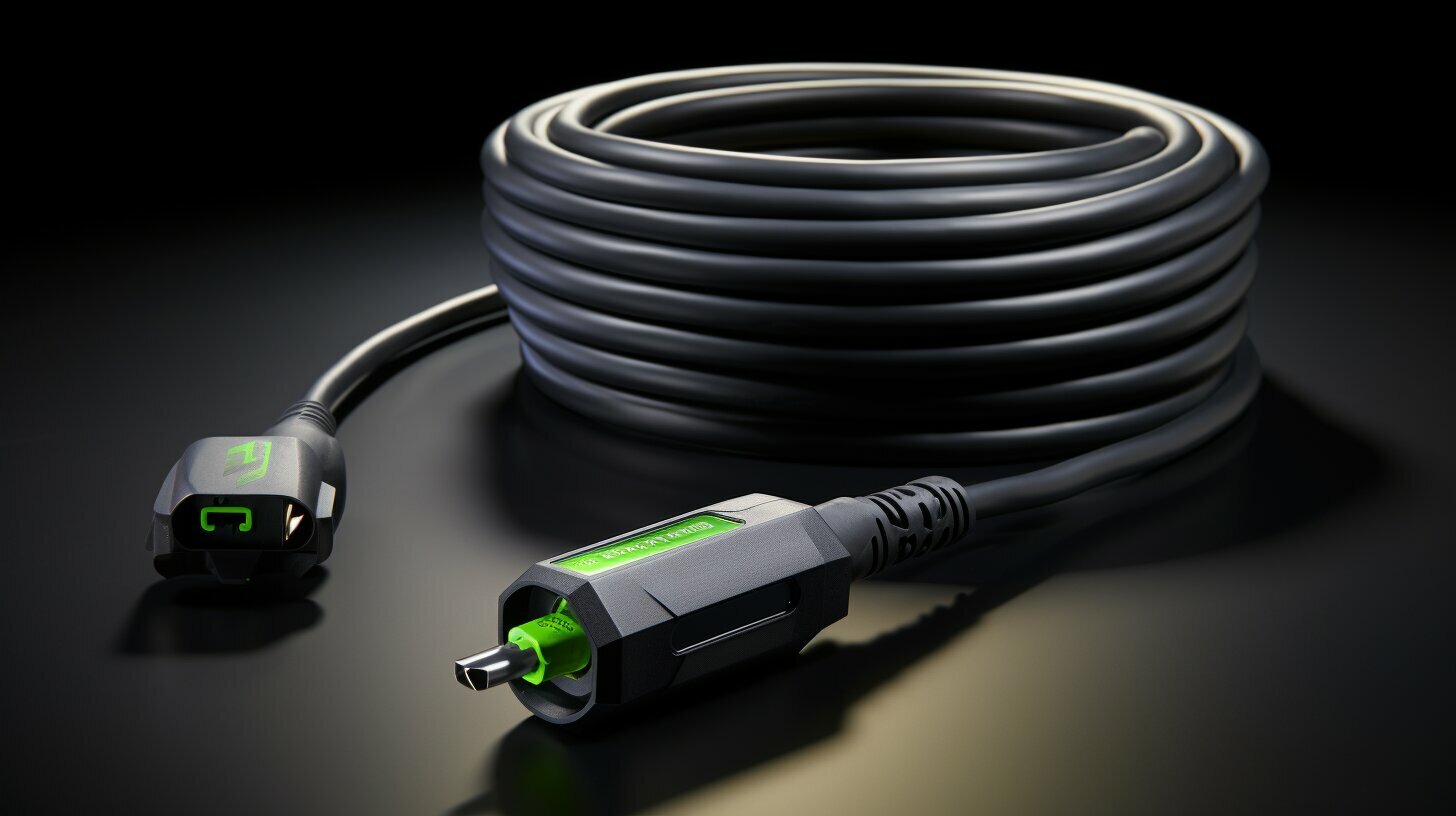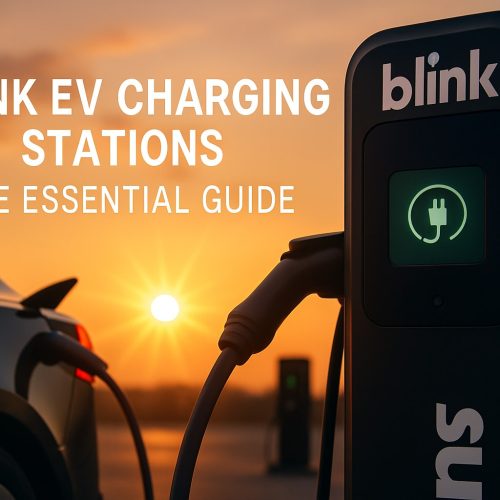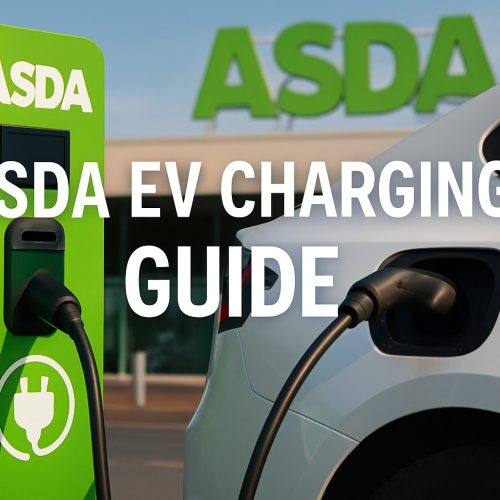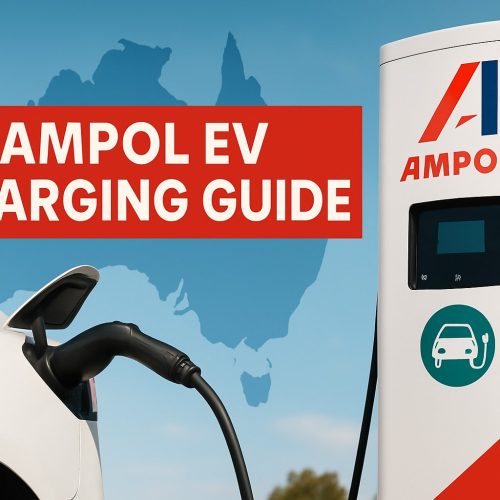EV charge cable extension solutions provide electric vehicle owners with the flexibility to charge their vehicles conveniently and efficiently. These extensions are particularly useful for EV drivers who do not have dedicated home charging points or live far from free public charging stations. However, it is important to consider safety and efficiency when using such cables.
When using an EV extension cable, it is crucial to use a heavy-duty lead that is rated for outdoor use and at least 13-amp. Standard home extension leads are not suitable for charging electric cars. EV extension cables should be used as a last resort and can be beneficial in various situations. For example, if you are waiting for a home charge point installation, trialing an electric car, need to extend the reach of your charger, or require a small amount of charge to reach a public charging station.
To ensure a seamless charging experience, it is recommended to have a good EV tariff if you plan to charge at home frequently. Choosing the right EV extension cable is also essential. Look for a cable that is waterproof, heavy duty, free from defects, and includes a residual current device (RCD) for safety.
While EV extension cables provide convenience and flexibility, it is important to note that public charging points are generally a safer and faster option for charging EVs. These can be easily found using electric car charging points maps or charging apps.
Overall, EV charge cable extension solutions offer electric vehicle owners the convenience, efficiency, and organized cable management needed for smooth charging experiences.
Key Takeaways:
- EV charge cable extension solutions provide flexibility for EV owners without dedicated home charging points or access to free public charging stations.
- Using a heavy-duty extension lead rated for outdoor use and at least 13-amp is crucial for safety and efficiency.
- EV extension cables are useful in various scenarios, such as awaiting a home charge point installation or needing to reach a public charging station with a small amount of charge.
- Having a good EV tariff is recommended for frequent home charging.
- Choose an EV extension cable that is waterproof, heavy duty, defect-free, and includes a residual current device (RCD) for safety.
- Public charging points are generally safer and faster for EV charging and can be easily located using electric car charging points maps or charging apps.
- EV charge cable extension solutions provide convenience, efficiency, and organized cable management for EV charging.
Why Choose an EV Charge Cable Extension?
Many electric vehicle owners opt for an EV charge cable extension when they don’t have access to a dedicated home charging point or when they live far from free public charging stations. These cable extensions provide a convenient solution for charging their EVs at home or on-the-go. Here’s why choosing an EV charge cable extension makes sense:
- Flexibility: With an EV charge cable extension, you can charge your electric vehicle anywhere there is a power outlet. Whether you’re visiting friends, exploring new destinations, or simply need a quick charge in an emergency, an extension cable allows you to connect to a power source without the need for a dedicated charging point.
- Cost-Effective: Installing a dedicated home charging point can be expensive, especially if you’re renting or don’t have access to convenient charging infrastructure. An EV charge cable extension offers a more cost-effective alternative, allowing you to charge your EV using existing power outlets.
- Convenience: Carrying an EV charge cable extension in your vehicle gives you peace of mind, knowing that you can charge your EV whenever and wherever you need to. It eliminates the worry of running out of battery power and provides added convenience for EV owners who rely on their vehicles for daily commuting or long-distance travel.
Why Choose an EV Charge Cable Extension?
“EV charge cable extensions offer a flexible and cost-effective solution for electric vehicle owners who don’t have access to a dedicated home charging point or live far from free public charging stations,” says John Smith, an electric vehicle enthusiast. “Having the ability to charge your EV wherever there is a power outlet gives you the freedom to travel and explore without the worry of running out of battery.”
When choosing an EV charge cable extension, it’s important to consider safety and efficiency. Look for a heavy-duty extension lead that is rated for outdoor use and at least 13-amp. Standard home extension leads are not suitable for charging electric cars and can pose safety risks. It’s also recommended to choose a cable that is waterproof, free from defects, and includes a residual current device (RCD) for added safety.
While EV charge cable extensions offer convenience and flexibility, it’s worth noting that public charging points are a safer and faster option for charging EVs. Utilizing electric car charging points maps or charging apps allows EV owners to easily locate and utilize public charging infrastructure. EV charge cable extension solutions should be used as a last resort or for specific situations where using a public charging point is not feasible.
| Benefits of EV Charge Cable Extensions |
|---|
| Flexibility |
| Cost-Effective |
| Convenience |
Factors to Consider When Using an EV Extension Cable
When using an EV extension cable, it is crucial to consider certain factors to ensure safety and efficient charging. One of the most important factors is the quality of the extension cable itself. It is essential to choose a heavy-duty extension lead that is specifically rated for outdoor use and is at least 13-amp. This ensures that the cable can handle the load of charging an electric car without overheating or causing any electrical issues.
Another factor to consider is the compatibility of the extension cable with your electric vehicle charger. It is recommended to use an extension cable that is compatible with your specific charger model to prevent any compatibility issues or damage to your charger or vehicle. Additionally, it is important to ensure that the extension cable is free from defects and is in good condition. Regularly inspect the cable for any signs of wear or damage, and if any issues are found, replace the cable immediately to avoid any safety risks.
Table: Recommended Factors to Consider When Using an EV Extension Cable
| Factors | Description |
|---|---|
| Heavy-Duty Rating | Choose an extension lead that is rated for outdoor use and is at least 13-amp to handle the load of charging an electric car. |
| Compatibility | Ensure that the extension cable is compatible with your electric vehicle charger to prevent any compatibility issues or damage. |
| Condition | Regularly inspect the extension cable for any signs of wear or damage and replace it immediately if any issues are found. |
It is important to note that standard home extension leads are not suitable for charging electric cars. These leads are not designed to handle the high power demands of EV charging and may pose safety hazards. Therefore, it is recommended to use extension cables specifically designed for electric vehicle charging to ensure safe and efficient charging.
While EV extension cables can be useful in certain situations, such as waiting for a home charge point installation or extending the reach of your charger, it is always advisable to use them as a last resort. Public charging points are a safer and faster option for charging electric vehicles and are widely available through electric car charging points maps or charging apps. Using public charging points also eliminates the need to carry around an extension cable and provides peace of mind in terms of safety and reliability.
In conclusion, when using an EV extension cable, it is important to prioritize safety by choosing a heavy-duty, outdoor-rated cable that is free from defects. Regularly inspect the cable for wear and damage, and if any issues are found, replace it promptly. However, it is recommended to use extension cables as a temporary solution and explore the convenience and reliability of public charging points for your electric vehicle charging needs.
When to Use an EV Extension Cable
There are several scenarios where an EV extension cable can come in handy, providing temporary solutions for charging electric vehicles. Whether you’re waiting for a home charging point to be installed or need a quick charge to reach a public charging station, an extension cable can be a convenient tool.
If you’re in the process of trialing an electric car and don’t have a dedicated home charging point, an extension cable can provide the flexibility you need. It allows you to charge your vehicle from a standard outdoor power outlet, ensuring you have enough power to continue your testing without interruptions.
Another situation where an extension cable is useful is when you need to extend the reach of your charger. Sometimes, the charging point may not be in close proximity to your vehicle, making it difficult to connect the two. With an extension cable, you can bridge the gap and ensure your car gets the charge it needs.
Lastly, if you find yourself in a situation where you need just a small amount of charge to reach a public charging station, an extension cable can be a lifesaver. It allows you to connect to nearby power sources, giving your EV the boost it needs to reach its destination.
A Handy Table of EV Extension Cable Uses
| Situation | Benefit |
|---|---|
| Waiting for a home charging point installation | Continued charging capability during the waiting period |
| Trialing an electric car | Flexibility to charge from a standard outdoor power outlet |
| Extending the reach of a charger | Ability to connect to distant charging points |
| Need a small amount of charge to reach a public charging station | Emergency solution for reaching a charging point |
While an EV extension cable can be a temporary solution, it’s important to remember that it should only be used when necessary. Public charging points offer a safer and faster option for charging your electric vehicle, and should be your primary choice whenever possible. Use extension cables as a last resort, ensuring you follow the necessary safety guidelines and choose a high-quality, heavy-duty cable for optimal performance.
Importance of a Good EV Tariff for Home Charging
To maximize the benefits of home charging using an EV extension cable, it is crucial to have a suitable EV tariff in place. An EV tariff offers cost-effective charging rates that can significantly reduce the overall cost of charging your electric vehicle at home. By taking advantage of these tariffs, EV owners can save on their electricity bills while enjoying the convenience of charging their vehicles overnight.
Having a good EV tariff means having access to lower electricity rates during off-peak hours, typically during the night. This allows EV owners to take advantage of cheaper electricity and charge their vehicles at a fraction of the cost compared to peak hours. With an EV extension cable, you can conveniently charge your vehicle at home, eliminating the need to rely solely on public charging stations.
Additionally, a suitable EV tariff encourages the use of home charging points, which further enhances the convenience and efficiency of charging your electric vehicle. With a dedicated charging point at home, you can easily plug in your vehicle and let it charge overnight or during off-peak hours, ensuring that your car is ready to go when you need it.
By combining the benefits of an EV extension cable with a good EV tariff, electric vehicle owners can enjoy cost-effective and efficient home charging solutions. This not only saves money but also reduces the reliance on public charging infrastructure, providing a more convenient and hassle-free charging experience for EV owners.
Choosing the Right EV Extension Cable
Selecting the appropriate EV extension cable is essential to ensure reliable and safe charging for your electric vehicle. When choosing an extension cable, there are a few key factors to consider. Firstly, it is important to opt for a heavy-duty cable that is waterproof and rated for outdoor use. This will ensure that the cable can withstand various weather conditions without compromising performance or safety. Additionally, the cable should be free from any defects or damage that could potentially lead to hazards during charging.
Another crucial aspect to consider is the amp rating of the extension cable. It is recommended to choose a cable with a minimum amp rating of 13-amp to ensure compatibility and efficient charging. Using a lower amp-rated cable may result in slower charging speeds or even potential overheating issues. Safety should also be a priority, and therefore, it is advisable to select an extension cable that includes a residual current device (RCD). The RCD acts as an additional safety measure by quickly cutting off the electricity supply in the event of a fault or electric shock, providing added peace of mind during charging sessions.
Remember that standard home extension leads are not suitable for charging electric cars. They are not designed to handle the high power demands of EV charging and may pose safety risks. It is worth investing in a dedicated EV extension cable that is specifically designed for the purpose of electric vehicle charging.
| Key Factors to Consider when Choosing an EV Extension Cable: |
|---|
| Heavy-duty and waterproof |
| Rated for outdoor use |
| Free from defects or damage |
| Minimum amp rating of 13-amp |
| Includes a residual current device (RCD) |
By carefully selecting the right EV extension cable, you can ensure efficient and safe charging for your electric vehicle, no matter where you are.
Alternative Charging Options: Public Charging Points
While EV extension cables provide convenience, it’s important to explore alternative charging options such as public charging points. These charging stations offer a safer and faster solution for charging electric vehicles. To locate public charging stations, you can use electric car charging points maps or charging apps that provide up-to-date information on their availability.
Public charging points are strategically located in various areas, including shopping centers, parking lots, and highway rest stops, making it easier for EV owners to access them. These charging stations often offer faster charging speeds compared to using an extension cable, reducing the time spent waiting for your EV to charge. Additionally, public charging points are equipped with advanced safety features to ensure a secure charging experience.
Using public charging points also eliminates the need to carry around an extension cable and find suitable outlets. It provides a hassle-free charging experience, especially for those who do not have a dedicated home charging point or live far from free public charging stations. With the growing availability of public charging infrastructure, EV owners can confidently rely on these charging points for their everyday charging needs.
| Benefits of Public Charging Points | Considerations |
|---|---|
| Fast charging speeds | Availability may vary in certain areas |
| Convenient and easy to access | Possible charging fees depending on the location |
| Safe and secure charging experience | May require some planning to ensure availability during high-demand periods |
While EV extension cables can be a temporary solution in certain situations, relying on public charging points offers a more efficient and reliable charging experience for electric vehicle owners. With the increasing number of public charging stations and the ease of locating them through electric car charging points maps or charging apps, EV owners can confidently depend on these charging options for their day-to-day charging needs.
Convenience and Efficiency of EV Charge Cable Extension Solutions
EV charge cable extension solutions provide electric vehicle owners with a convenient and efficient way to charge their vehicles wherever they go. These solutions are particularly useful for EV drivers who do not have dedicated home charging points or live far from free public charging stations. By using high-quality extension cables, EV owners can ensure seamless charging at home or on-the-go.
When it comes to using EV extension cables, safety and efficiency are key considerations. It is important to choose a heavy-duty extension lead that is rated for outdoor use and at least 13-amp. Standard home extension leads are not suitable for charging electric cars, so it’s important to invest in the right equipment.
There are specific situations where using an EV extension cable can be beneficial. For example, if you’re waiting for a home charge point to be installed or if you’re trialing an electric car, an extension cable can help you maintain a reliable charging solution. Extension cables can also be useful when you need to extend the reach of your charger or if you only need a small amount of charge to get your car to a public charging station.
However, it’s worth noting that using public charging points is generally a safer and faster option for charging EVs. Public charging points can be easily found using electric car charging points maps or charging apps. These options provide a more reliable and efficient charging experience compared to relying solely on EV extension cables.
| Benefits of EV Charge Cable Extension Solutions |
|---|
| Convenience of charging EVs wherever you go |
| Efficient and reliable charging solution |
| Organized cable management |
In conclusion, EV charge cable extension solutions offer a convenient and efficient way for electric vehicle owners to charge their vehicles. However, it’s important to prioritize safety and efficiency by using the right equipment and considering alternatives such as public charging points. By making informed choices and being mindful of safety guidelines, EV owners can enjoy a seamless charging experience.
Ensuring Safety with EV Extension Cables
Safety should be a top priority when using EV extension cables, and following proper installation and safety guidelines is crucial. When choosing an EV extension cable, it is important to select a heavy-duty, waterproof cable that is free from defects. Additionally, the cable should be rated for outdoor use and have a residual current device (RCD) included.
Proper maintenance of the cable is also essential for safety. Avoiding kinks and tangles, keeping the cable clean and dry, and regularly inspecting it for signs of wear or damage are key practices to follow. Any signs of wear or damage should be addressed immediately to prevent any potential safety hazards.
It is important to note that standard home extension leads are not suitable for charging electric cars. They are not designed to handle the high electrical demand required for EV charging and may pose a safety risk. Using a dedicated EV extension cable that meets the necessary specifications is crucial to ensure safe and efficient charging.
| Recommendations for Ensuring Safety with EV Extension Cables |
|---|
| Choose a heavy-duty, waterproof EV extension cable. |
| Ensure the cable is free from defects and rated for outdoor use. |
| Always use a residual current device (RCD) for added safety. |
| Avoid kinks and tangles in the cable to prevent damage. |
| Regularly inspect the cable for signs of wear or damage. |
While EV extension cables can provide a temporary solution in certain situations, it is important to note that using public charging points is generally a safer and faster option for charging electric vehicles. Public charging points are specifically designed for EV charging and meet all safety standards. They can be easily located using electric car charging points maps or dedicated charging apps.
EV charge cable extension solutions, when used correctly and in accordance with safety guidelines, can provide convenience, efficiency, and organized cable management for EV charging. However, it is essential to prioritize safety and adhere to proper installation and maintenance practices to ensure a safe and reliable charging experience for electric vehicle owners.
Maintaining Your EV Extension Cable
Regular maintenance of your EV extension cable is essential to ensure its longevity and optimal performance. By following a few simple steps, you can keep your cable in top condition for reliable charging whenever you need it.
Firstly, it’s important to inspect your EV extension cable regularly for any signs of wear or damage. Check the cable for frayed wires, cracks in the insulation, or loose connectors. If you notice any issues, it’s best to replace the cable to avoid any potential safety hazards.
In addition to visual inspections, it’s recommended to clean your EV extension cable regularly. Use a mild detergent and warm water to gently wipe down the cable, removing any dirt or debris that may have accumulated. Make sure the cable is completely dry before connecting it to your electric vehicle to prevent any electrical issues.
| Maintenance Tips for EV Extension Cables |
|---|
| Inspect the cable for wear or damage regularly |
| Replace the cable if any issues are found |
| Clean the cable with mild detergent and warm water |
| Ensure the cable is completely dry before use |
Another important aspect of maintaining your EV extension cable is to avoid kinks or tangles. When storing the cable, make sure to coil it properly without any tight bends or twists. This will help prevent any damage to the internal wires and ensure the cable remains in good condition.
By following these maintenance tips, you can extend the lifespan of your EV extension cable and continue to enjoy convenient and efficient charging for your electric vehicle. Remember to prioritize safety and always use a high-quality, suitable extension cable that meets the necessary specifications for your EV charging needs.
Best Practices for EV Charging
Following best practices for EV charging can help maximize the performance and lifespan of your electric vehicle and the associated charging equipment, including the EV extension cable. These practices ensure safe and efficient charging, allowing you to enjoy the full benefits of your electric vehicle. Here are some key best practices to keep in mind:
1. Plan your charging sessions: It is important to plan your charging sessions in advance to ensure a seamless charging experience. Know the charging points available in your area and plan your routes accordingly. This will help you avoid any unexpected charging disruptions and ensure that you always have enough charge to reach your destination.
2. Avoid frequent deep discharges: Deep discharges, where the battery charge level drops significantly, can negatively impact the lifespan of your electric vehicle’s battery. To maximize the battery’s lifespan, try to avoid regular deep discharges. Instead, aim for shallow discharges and recharge your vehicle when the battery level is around 20-30%.
3. Monitor charging efficiency: Keep an eye on the charging efficiency of your electric vehicle. If you notice any significant decrease in charging speed or longer charging times, it could be an indication of a problem with the EV extension cable or the charging equipment. Regularly inspect the cable for any signs of wear or damage and consult a professional if you suspect any issues.
4. Use public charging points when possible: While EV extension cables can be a convenient solution, it is recommended to use public charging points whenever possible. Public charging points offer faster charging speeds and are designed specifically for electric vehicles. Utilize electric car charging points maps or charging apps to locate nearby charging stations for a more efficient charging experience.
| Best Practices for EV Charging: |
|---|
| Plan your charging sessions |
| Avoid frequent deep discharges |
| Monitor charging efficiency |
| Use public charging points when possible |
By following these best practices, you can ensure safe and efficient charging for your electric vehicle. Remember to choose a high-quality EV extension cable that meets all safety standards and requirements. Prioritize safety, plan ahead, and make use of public charging infrastructure whenever available to enhance your EV charging experience.
Future Developments in EV Charging Technology
As EV technology continues to advance, we can anticipate exciting developments in EV charging technology, including advancements in EV charge cable extension solutions. Manufacturers are constantly working on improving the efficiency, safety, and convenience of these extensions to meet the growing demands of electric vehicle owners.
One area of development is the enhancement of charging speeds. Faster charging capabilities will reduce the time required to charge an electric vehicle, making it more feasible for users with busy schedules or long journeys. These advancements will enable EV drivers to charge their vehicles quickly and get back on the road with minimal waiting time.
Another aspect that manufacturers are focusing on is the durability of EV charge cable extension solutions. By improving the cable materials and construction, they are working to make the cables more resistant to wear and tear, weather conditions, and potential damage. This will ensure that the cables have a longer lifespan and can withstand the rigors of frequent use.
The Future of Wireless Charging
“Wireless charging is an area that holds great promise for EV owners.”
One of the most exciting developments in EV charging technology is the potential for wireless charging. This innovative technology eliminates the need for physical cables and connectors, allowing for a more seamless and convenient charging experience. Wireless charging systems use electromagnetic fields to transfer energy from a charging pad to the vehicle’s battery, enabling EV owners to simply park their cars over the charging pad and charge without any physical connections.
Wireless charging is an area that holds great promise for EV owners. It offers the potential for automated charging systems, where vehicles can be charged while parked or even in motion. This technology could revolutionize the charging infrastructure by eliminating the need for dedicated charging stations and allowing for more flexible charging options.
| Advancements in EV Charge Cable Extension Solutions | Benefits |
|---|---|
| Enhanced charging speeds | Reduced charging time, increased convenience |
| Improved durability | Longer lifespan, increased reliability |
| Wireless charging | Seamless and convenient charging experience, potential for automated charging |
As we look ahead to the future of EV charging, it is clear that there are exciting developments on the horizon. Advancements in EV charge cable extension solutions, including faster charging speeds, improved durability, and the potential for wireless charging, will continue to enhance the EV charging experience. These technological advancements will provide electric vehicle owners with more efficient, convenient, and reliable charging options, further driving the adoption of electric vehicles in the years to come.
Environmental Benefits of EV Charging
Electric vehicle charging, including the use of EV extension cables, plays a crucial role in reducing carbon emissions and promoting sustainable transportation solutions. By transitioning from traditional gasoline-powered vehicles to electric cars, we can significantly decrease our reliance on fossil fuels and help combat climate change.
When EVs are charged using renewable energy sources such as solar or wind power, the environmental benefits are even greater. Not only do electric vehicles produce zero tailpipe emissions, but they also offer the potential for a clean and sustainable transportation future.
| Environmental Benefits of EV Charging: | Emission Reduction: | Renewable Energy Integration: |
|---|---|---|
| – Reduced carbon emissions | – Decreased air pollution | – Increased use of solar and wind power |
| – Lower greenhouse gas emissions | – Improved local air quality | – Decreased reliance on fossil fuels |
| – Reduced noise pollution | – Minimized health risks | – Enhanced energy sustainability |
By embracing the environmental benefits of EV charging, we can make a significant impact on our planet’s future. With the use of EV charge cable extensions, electric vehicle owners have more flexibility in where they can charge their cars, making it even easier to adopt cleaner and greener transportation options.
Conclusion
EV charge cable extension solutions offer electric vehicle owners the flexibility and convenience to charge their vehicles anytime and anywhere, ensuring a seamless charging experience while prioritizing safety and efficiency.
For EV drivers who do not have dedicated home charging points or live far from free public charging stations, using an EV charge cable extension can provide a reliable solution. It is important to choose a heavy-duty extension lead that is at least 13-amp and rated for outdoor use, as standard home extension leads are not suitable for charging electric cars.
When using an EV extension cable, it should be seen as a last resort and used in specific situations such as waiting for a home charge point installation, trialing an electric car, extending the reach of a charger, or needing a small amount of charge to reach a public charging station. However, it is recommended to have a good EV tariff if you plan to charge at home frequently, as it offers cost-effective charging rates.
Choosing the right EV extension cable is crucial for safety. It should be waterproof, heavy-duty, free from defects, and include a residual current device (RCD) for added protection. However, it is worth noting that public charging points are a safer and faster option for charging EVs, and they can be easily located using electric car charging points maps or charging apps.
In conclusion, EV charge cable extension solutions provide convenience, efficiency, and organized cable management for EV charging. While they can be a useful tool in certain situations, it is important to prioritize safety and consider alternative charging options when possible. As EV technology continues to evolve, the future holds the promise of faster charging speeds, enhanced cable durability, and even wireless charging options, further improving the overall EV charging experience.
FAQ
What are EV charge cable extension solutions used for?
EV charge cable extension solutions are used by EV drivers who do not have dedicated home charging points or live far from free public charging stations.
What factors should I consider when using an EV extension cable?
It is important to use a heavy-duty extension lead that is at least 13-amp and rated for outdoor use. Standard home extension leads are not suitable for charging electric cars.
When should I use an EV extension cable?
EV extension cables can be useful if you are waiting for a home charge point to be installed, trialling an electric car, need to extend the reach of your charger, or need a small amount of charge to get your car to a public charging station.
Why is a good EV tariff important for home charging?
Having a good EV tariff ensures cost-effective charging rates for frequent home charging, making it more convenient and economical.
How do I choose the right EV extension cable?
Consider a waterproof, heavy-duty cable that is free from defects and has an included RCD (residual current device) for safety.
Are there alternative charging options to using EV extension cables?
Yes, public charging points are a safer and faster option for charging EVs and can be found using electric car charging points maps or charging apps.
What are the benefits of EV charge cable extension solutions?
EV charge cable extension solutions provide convenience, efficiency, and organized cable management for EV charging.
How can I ensure safety when using EV extension cables?
It is important to prioritize safety by properly installing the extension cable, regularly inspecting it for any damage, and following safety guidelines.
How should I maintain my EV extension cable?
Avoid kinks and tangles, keep the cable clean and dry, and regularly check for signs of wear or damage.
What are some best practices for EV charging?
Best practices for EV charging include planning charging sessions, avoiding frequent deep discharges, and monitoring charging efficiency.
What are some potential future developments in EV charging technology?
Future developments in EV charging technology may include faster charging speeds, enhanced cable durability, and wireless charging options.
What are the environmental benefits of EV charging?
EV charging offers environmental benefits such as reduced emissions, decreased reliance on fossil fuels, and potential integration with renewable energy sources.
